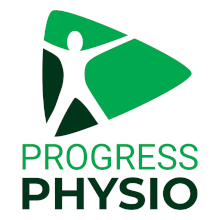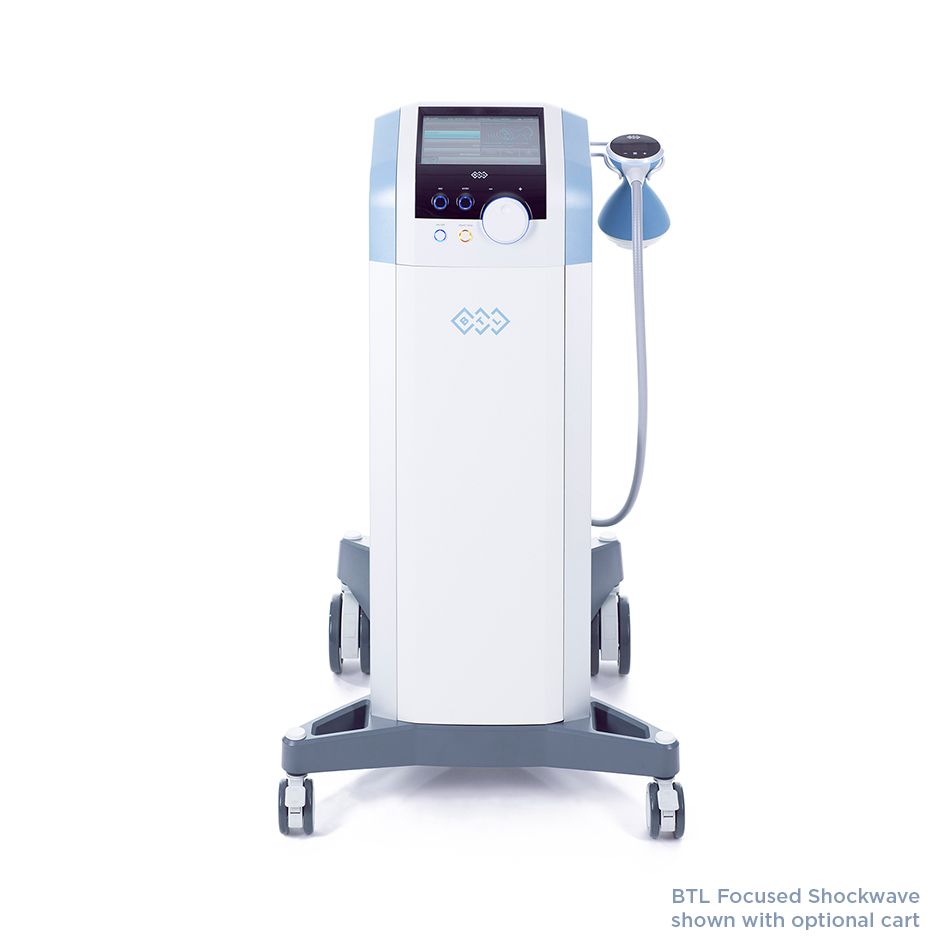A BREAKTHROUGH IN MUSCULOSKELETAL INJURIES
Physiotherapists have been incorporating physical modalities in their practice for decades. Ultrasound, TENS, Laser, and Interferential Current (IFC) are common in clinics across Canada. The truth is the evidence to support the effectiveness of these devices has always been lacking.
Extracorporeal Shockwave Therapy (ESWT) has been a game changer in helping patients recover from soft tissue injuries. The scientific evidence supporting ESWT is impressive. There are hundreds of high-quality studies supporting the positive impacts of ESWT on patient outcomes and recovery from musculoskeletal injuries.
This technology has become a must have for physiotherapy practitioners. Offering patients evidence based, effective care is a key goal for all clinicians. Progress Physiotherapy is a leader in delivering Shockwave Therapy. We are one of only a few clinics in Canada to offer both Focus and Radial Shockwave Technologies.
TWO TYPES OF SHOCKWAVE
There are now two types of ESWT: Focus and Radial shockwave.
What is the difference between Focus and Radial shockwave?
Radial shockwaves are divergent, meaning they dissipate quickly and are good for treating superficial tissues over a broad area. Radial shockwave’s effective penetration is approximately 0-3cm. Focus shockwaves are convergent and the effective penetration depth can be adjusted. This allows the clinician to customize your treatment and target specific tissues. Focus shockwaves can treat deeper tissues and joints up to 15cm beneath the skin. If your provider only has access to Radial Shockwave, they are limited in the conditions they can effectively treat.
HOW DOES SHOCKWAVE WORK?
Shockwaves are pro-inflammatory. Inflammation is the first stage of healing and therefore a mandatory part of our tissue healing cycle. Shockwave Therapy helps facilitate high-quality healing. The shockwaves produce pressure changes (micro-cavitation) in tissues that stimulate the activity of key local cells. This impact can result in softer scar tissue, increase tissue hydration and elasticity, circulation and angiogenesis. Softer, more elastic tissues that receive more blood flow enable optimal healing conditions. In addition to these effects, shockwaves desensitize local nerve endings and help mediate the chemistry of pain. Patients experience pain reduction, allowing the faster progression of rehabilitation exercises.
ARE SHOCKWAVE TREATMENTS PAINFUL?
The convergent waves delivered by Focus Shockwave bypass the pain sensors in your skin, making this treatment more comfortable than Radial Shockwave. As Radial Shockwaves are pneumatic and superficial, these treatments are more uncomfortable for patients. Your therapist will adjust the intensity to your personal tolerance.
HOW MANY SHOCKWAVE TREATMENTS ARE REQUIRED?
Patients receiving Radial Shockwave typically receive 5-10 therapy sessions. Focus Shockwave works faster, patients generally attend 3-5 therapy sessions.
WILL PATIENTS SEE RESULTS RIGHT AWAY?
Shockwave Therapy generates healing in your soft tissues. The healing cascade lasts approximately six weeks after you complete your therapy sessions. Most patients will feel improvement in pain levels during their treatments. However, the full impact of the therapy will not be reached until six weeks post-treatment. It is important to note that therapy also includes homework – doing your prescribed exercises is a vital component to your improvement.
COMMON CONDITIONS TREATED
- Chronic Tendinopathy: Achilles Tendon, Rotator Cuff, Patellar Tendon, Tennis or Golfer’s Elbow, Hamstring Tendon, Quadriceps Tendon, Gluteus Medius, and Minimus Tendons
- Calcific Tendinopathy
- Ligament Sprains: Ankle Ligaments, Medial or Lateral Collateral Ligaments, Acromio-clavicular Ligaments, Wrist Ligaments
- Muscle Strains: Through the Body
- Carpal Tunnel Syndrome
- Plantar Fasciitis
- Repetitive Strain Injuries
- Osteo-Arthritis: Knee, Ankle, Spine, Shoulder, Hip, TMJ, Joints of Hands and Feet
- Bursitis
- Myofascial Trigger Points
- Non-Union Bone Fracture, Stress Fractures
SAFETY OF SHOCKWAVE
Shockwave Therapies are non-invasive, safe, and effective. Shockwave Therapies are generally very well tolerated by patients. These technologies should always be delivered by trained and experienced professionals.




